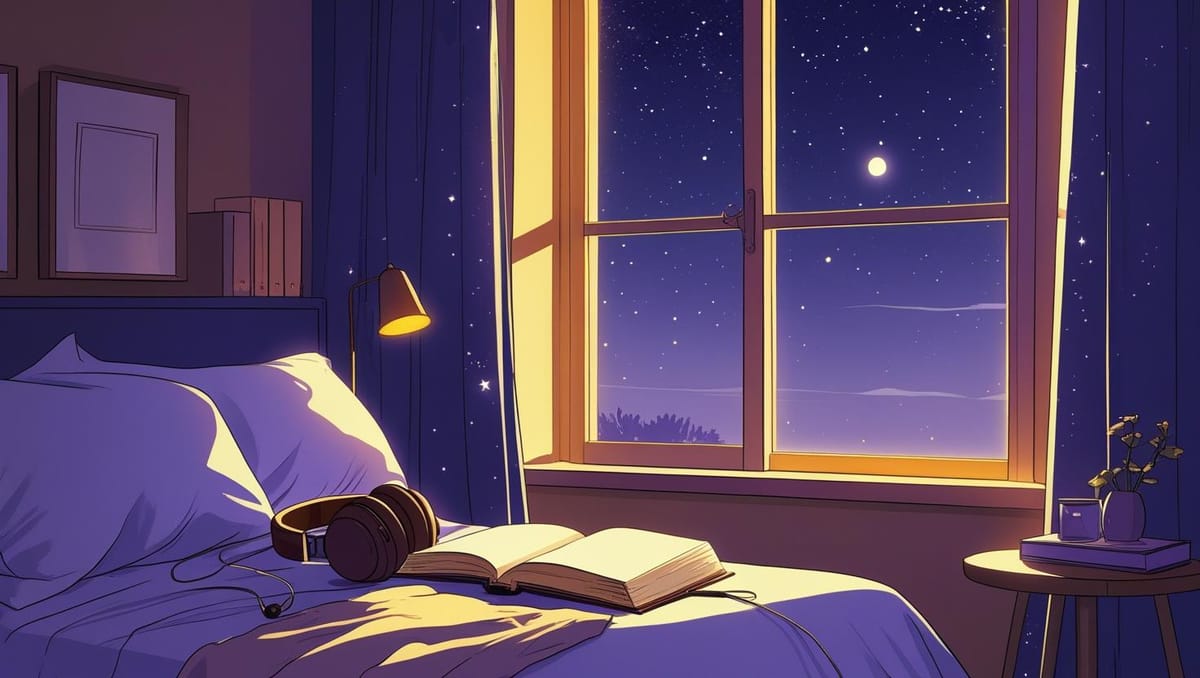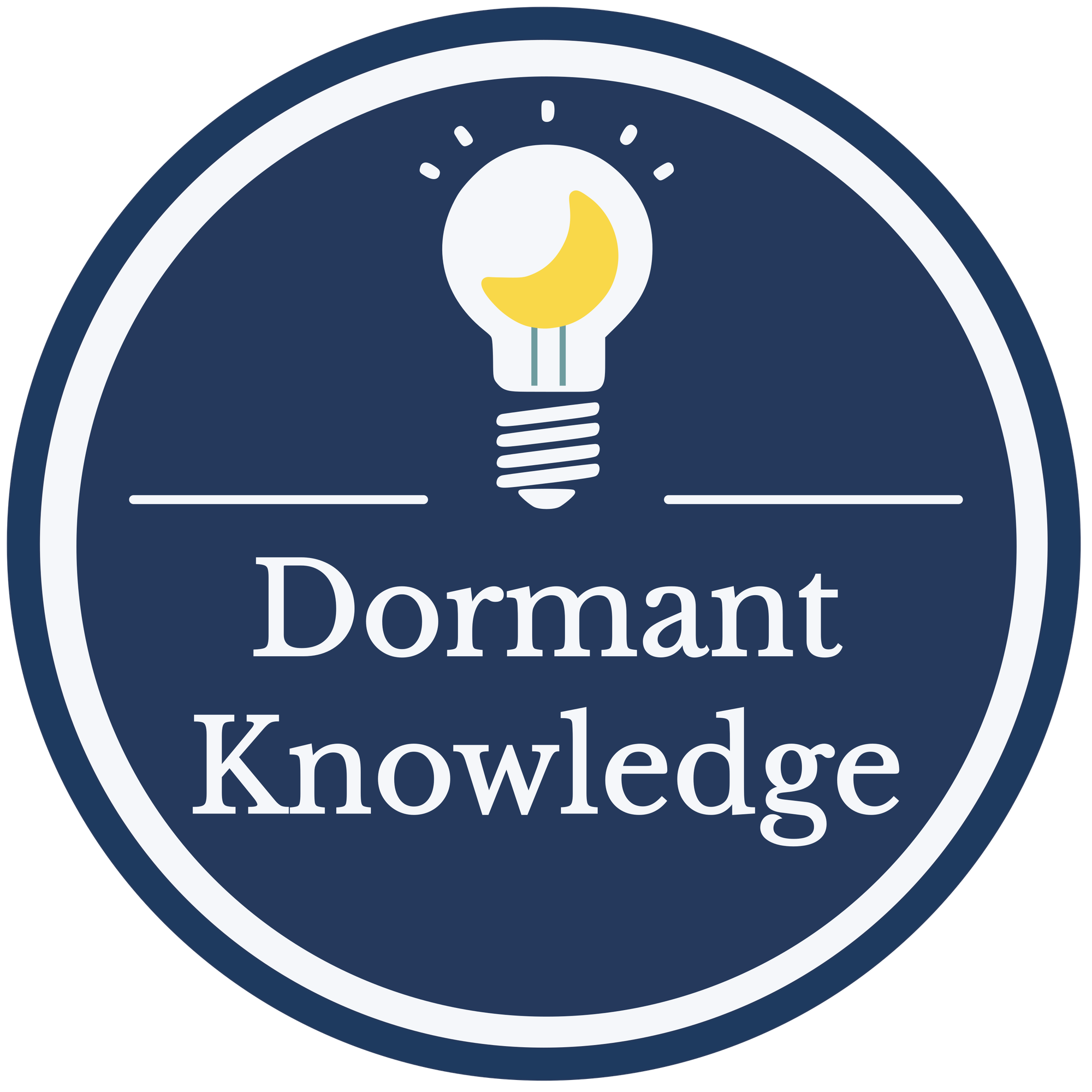Why I Created a Podcast for Insomniacs, Night Owls, and Perpetual Learners
I've been lying awake at night for twenty years. Dormant Knowledge isn't just for chronic insomniacs like me. It's for people who've realized that our minds don't stop working just because it's nighttime, and that maybe—just maybe—we can turn those sleepless hours into something meaningful.

I've been lying awake at night for twenty years.
It started with an injury that made my go-to sleep position—the one that had worked perfectly fine for my entire childhood—suddenly painful. What followed was two decades of tossing and turning, of trying every sleep remedy under the sun, and of that particular 3 AM frustration that comes from knowing you need rest but being unable to find it.
The worst night was during college. I'd accidentally grabbed caffeinated tea instead of decaf before bed—a mistake I didn't realize until I was lying in my dorm room, staring at the ceiling for eight straight hours without a single minute of sleep. The next day was midterms. I remember the surreal feeling of walking into my first exam having been awake for over 24 hours, my brain feeling like it was wrapped in cotton.
But that was just one night. For me, and for millions of others, sleepless nights became a regular occurrence.
The Perpetual Search for Solutions
Over the years, I've tried everything: yoga, meditation, valerian root, melatonin, better sleep hygiene, blackout curtains, white noise machines, different relaxing music playlists, a new mattress, different pillows, weighted blankets. Some things helped a little. Nothing solved the problem completely.
When I became a parent, the situation got more complex. Now I wasn't just dealing with my own sleep issues—I was navigating the unpredictable sleep patterns of young children. And here's what I discovered talking to other parents: even on those rare, precious nights when the kids actually sleep through the night, many of us still can't. Our bodies and minds have been so conditioned for interrupted sleep that we lie there awake anyway, almost insulted by our own inability to take advantage of the opportunity.
It's a special kind of frustration, lying there knowing your children are finally, blissfully asleep, and you should be too, but your brain just won't cooperate.
The Learning Paradox
Throughout all of this, I've been a voracious podcast listener. I started back in college twenty years ago, and my podcast app now tells me I've listened for over 100 days in just the last 4.5 years. I play everything at 1.5x speed just trying to keep up with my backlog of shows about news, history, science, philosophy, true crime—you name it.
But here's the thing about being chronically sleep-deprived: you want to learn, but you're often too tired for content that demands your full attention. I'd find myself lying in bed, mentally exhausted but physically wired, scrolling through my podcast queue and feeling like nothing quite fit the moment. Educational podcasts required too much focus. Pure entertainment felt like empty calories when I was already feeling guilty about not being productive.
That guilt was its own problem. When you're lying awake at night, especially as a parent, there's this nagging sense that you're wasting time. You're not getting the rest you desperately need, but you're also not accomplishing any of the endless tasks on your to-do list. You're stuck in this liminal space, too tired to be truly productive but too awake to actually rest.
The Accidental Discovery
Then I started noticing something interesting. Sometimes I'd put on a podcast while lying in bed, thinking I'd listen for a few minutes before trying to sleep again. I'd wake up the next morning with my phone still playing, having missed most of the episode. But here's the weird part: I could often remember details from parts of the show I thought I'd slept through.
It made me curious about what happens to our brains in that drowsy, in-between state. I started paying attention to when I felt most receptive to information, and I realized that sometimes my most relaxed, open mental state came when I was tired but not quite asleep—when my critical, anxious daytime mind had quieted down but I was still conscious enough to absorb new ideas.
Testing the Theory
That's when the idea for Dormant Knowledge started taking shape. What if there was educational content specifically designed for this state of mind? What if learning didn't have to happen only when we're fully alert and caffeinated?
I've been testing this theory on myself, listening to rough edits of the first episode multiple times while lying in bed. The result? I still haven't heard the ending. Every time, I drift off somewhere in the middle, but I wake up with new knowledge about calculus rattling around in my brain.
It seems to work.
For Anyone Who's Ever Felt Caught Between
Dormant Knowledge isn't just for chronic insomniacs like me. It's for shift workers whose sleep schedules don't align with the rest of the world. It's for parents whose sleep has been hijacked by small humans with their own mysterious rhythms. It's for anyone dealing with anxiety, chronic pain, or just the general stress of modern life that makes quality sleep feel like a luxury.
It's for people who love learning but feel guilty about not being productive during those long, wakeful hours. It's for anyone who's ever felt caught between needing rest and wanting growth, between being too tired for traditional education but too curious to just lie there doing nothing.
Most of all, it's for people who've realized that our minds don't stop working just because it's nighttime, and that maybe—just maybe—we can turn those sleepless hours into something meaningful.
Because sometimes the best learning happens when we stop trying so hard to be awake.
Dormant Knowledge launches soon. Episode 0 and Episode 1 are currently in final editing. Sweet dreams, and happy learning.




